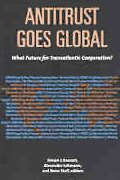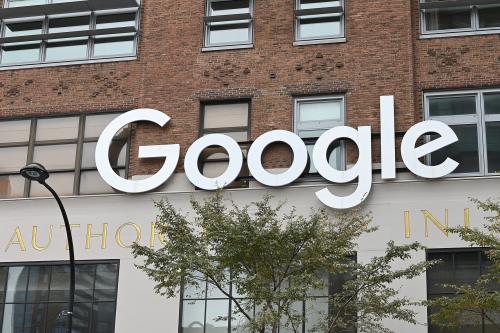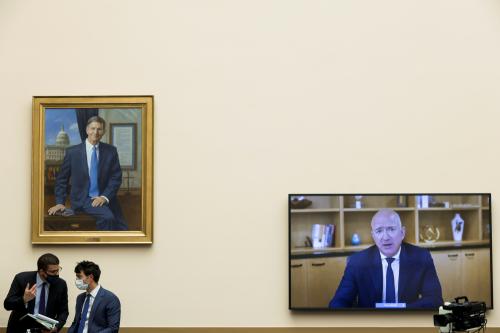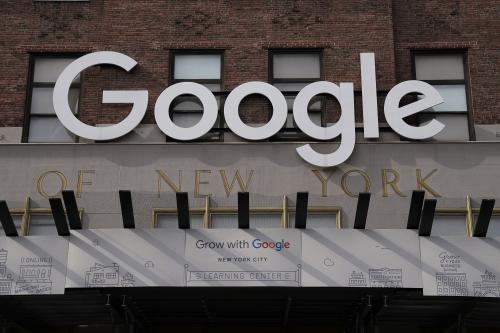On Thursday, Senator Amy Klobuchar (D-MN), the new chair of the Senate Judiciary Committee’s Antitrust Subcommittee, introduced sweeping legislation to update the U.S. antitrust enforcement regime. Among other things, Klobuchar proposes to modify the laws governing mergers and acquisitions (M&A) to block “exclusionary conduct” by dominant firms, shift the burden of proof to the business community in certain circumstances to demonstrate that acquisitions or conduct do not harm competition, and authorize a significant increase in funding for federal antitrust enforcement. Her bill is unprecedented, comprehensive, and bold. And some of what she proposes may well generate bipartisan support.
The bill is premised on the notion that 40 years of Chicago School conservative orthodoxy has left antitrust enforcement ill-equipped to address the challenges of the 21st century economy. The result, Klobuchar and others argue, is more concentrated markets, unchecked Pac-Man acquisitions by dominant firms in tech and other sectors, more sellers with monopoly power, more buyers with monopsony power, and an overly cautious jurisprudence that ignores the plain meaning of current antitrust laws.
Key provisions of the Competition and Law Enforcement Reform Act
Klobuchar proposes to address these through a combination of statutory changes and burden shifts. She seeks to reinvigorate antitrust enforcement and direct the courts to be more receptive to antitrust challenges than in the recent past.
On mergers, her proposal has two key components. First, she would modify Section 7 of the Clayton Act to forbid mergers that “create an appreciable risk of materially lessening competition” rather than the current language that only prohibits M&A activity that risks “substantially lessening competition.” She persuasively argues—and I have also said before—that the courts misinterpret the current Clayton Act language to demand a near certainty of future harm before enjoining a deal. Her bill also explicitly prohibits mergers that risk creating buyer monopsony power. Second, her bill shifts the burden of proof from the government to companies proposing mergers where market concentration would increase significantly; where—and this is my Pac-Man point—a large firm wants to gobble up smaller, would-be competitors; where the acquired firm is a disruptive (e.g., price-cutting) competitor; where the deal is worth at least $5 billion; or where the buyer is worth at least $100 billion. This is not an outright ban on those mergers and acquisitions, but a requirement that companies demonstrate that the benefits of a transaction to consumers and competition significantly outweigh any risks.
The bill makes comparable modifications to the law governing certain behaviors by dominant firms. It amends Section 2 of the Clayton Act to prohibit “exclusionary conduct,” which is defined as conduct that materially disadvantages competitors or limits their opportunity to compete and presents “an appreciable risk of harming competition.” For firms with large market shares or which demonstrate other indicators of market power, she proposes a rebuttable presumption that exclusionary conduct presents an “appreciable risk of harming competition.”
The bill seeks significant funding increases for both the Antitrust Division of DOJ and the FTC to make up for a “decade of flat budgets” in the face of a growing economy, increased M&A activity, and growing concern with both market concentration and single firm dominance.
Finally, the senator’s bill covers other important issues like civil fines for violations, increased focus on market analysis and outcomes of consummated mergers, and expanded whistleblower protections to those exposing civil violations.
Addressing modern antitrust challenges
The debate over Klobuchar’s proposals, in my view, will focus principally on whether it is time to substantively modify antitrust law and to increase the responsibility of the business community to justify consolidation and behaviors that risk injury to consumers and competition.
That debate will be vigorous—and is long overdue. We have experienced 40 years under the guiding hand of Chicago School antitrust jurisprudence. We can and should assess whether the caution imbedded in that approach has, at the end of the day, made markets more or less competitive, whether more concentrated markets still promote competition, and whether dominant firms should be allowed to do whatever they want so long as they offer up some sort of efficiency rationale for their behavior. As the House Antitrust Subcommittee majority report stated late last year and as the recent antitrust challenges to Facebook and Google allege, there are questionable behaviors that need to be examined. But it is important to note that, even if the allegations against Facebook and Google are proven (for example, the claim that Facebook purchased Instagram and WhatsApp to eliminate the threat of competition), it is unclear whether those behaviors would violate current antitrust law—at least as the courts today interpret it.
We also need to consider whether prospective guidance detailing what constitutes unacceptable behavior by dominant firms is a better—and more efficient—way to deal with these public policy concerns, especially in high tech markets where dominant firms can entrench themselves for the long term. The antitrust actions against Google, brought by DOJ and many state attorneys general, make the point. The trial in the consolidated action against Google won’t begin until September 2023—almost 3 years after the filing of the complaints that involve allegations of misconduct going back many years. Delays in the trial schedule are likely and appeals inevitable. That is a long time for the American public to wait. Although Klobuchar’s bill, if passed, would not retroactively apply to conduct predating the amendments, updated antitrust laws could prevent future uncertainty about what constitutes anticompetitive conduct and what burden the government must meet to demonstrate it—which, in turn, should incentivize firms to moderate their behavior and reduce their exposure to governmental (and private) antitrust challenges.
I suggested earlier that at least some of Klobuchar’s legislation could have bipartisan support. That is admittedly a bold prediction given the track record of recent congresses and the challenging politics of today. But look first to how Republican members reacted to the House Antitrust Subcommittee majority report issued last October, which includes some similar proposals to those in Klobuchar’s new bill. Congressman Ken Buck (R-CO) wrote, on behalf of his GOP colleagues, in support of legislation to toughen merger enforcement, create presumptions that certain activities are anticompetitive, shift burdens of proof, and increase enforcement funding—all areas of bipartisan consensus, despite other differences in approach. Just this week, Buck, who recently became the ranking member of the House Antitrust Subcommittee, reiterated those views. Moreover, the Senate Antitrust Subcommittee that Klobuchar now chairs has a tradition—embraced by both Klobuchar and Senator Mike Lee (R-UT), the ranking Republican—of working together. That’s no guarantee of consensus or even progress. Indeed, Lee recently expressed skepticism about the need to change our antitrust laws.
But what we have is an atmosphere that makes constructive dialogue possible. And that dialogue is long overdue.
Facebook and Google are general, unrestricted donors to the Brookings Institution. The findings, interpretations and conclusions in this piece are solely those of the author and not influenced by any donation.
The Brookings Institution is committed to quality, independence, and impact.
We are supported by a diverse array of funders. In line with our values and policies, each Brookings publication represents the sole views of its author(s).










Commentary
How Senator Klobuchar’s proposals will move the antitrust debate forward
February 8, 2021